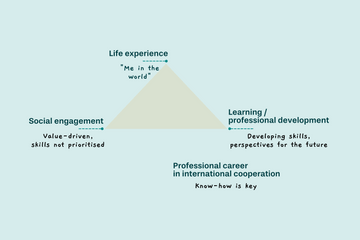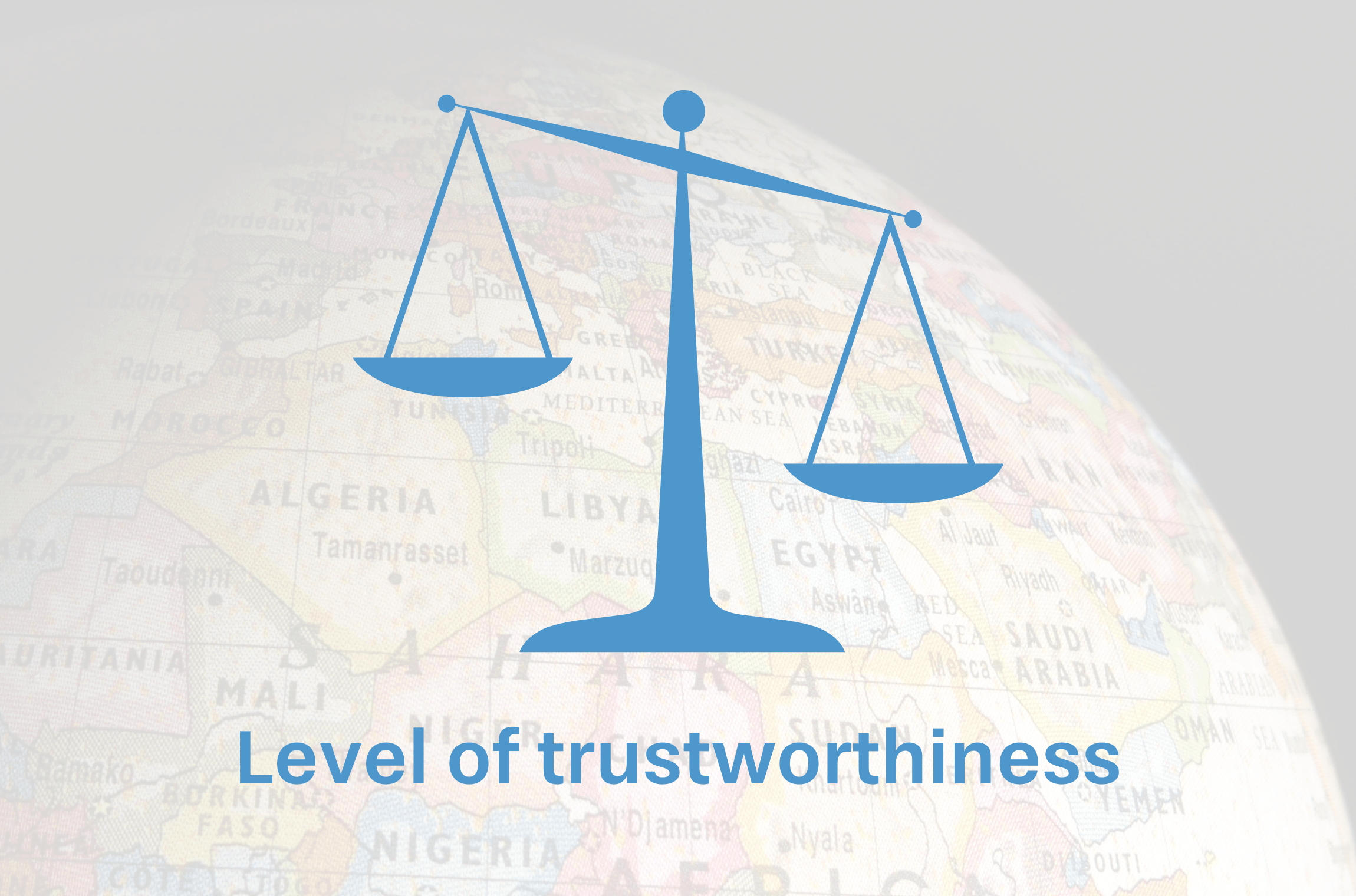Voluntary work, charity work, volunteering – what is what?
Terms such as 'voluntary work', 'benevolat', 'assignments' or 'volunteering' can conjure up certain images and ideas. In fact, the same terms can have different meanings in different contexts or organisations. Take a closer look before you engage in, or rule out the possibilities.

cinfo is often confronted with questions relating to voluntary work, charity work or non-professional work in international cooperation (IC). Over a series of articles, we will shed light on various topics such as the value of volunteering for a professional career in IC, qualification criteria or the compensation or costs of placements.
This article takes a look at terms that sometimes cause confusion.
Volunteering, voluntary work, benevolat, internships, social engagement, etc. are terms that can have different meanings depending on the context or organisation. Questions on this topic should be broad and not just about remuneration. Values, responsibility, status, duration, required competencies, institutional framework and work experience are equally important aspects.
Before ruling out or accepting such a position, you should get an overview of the subject.
It may help to categorise an experience or opportunity as falling between the poles of self-exploration or desire for discovery, professional learning experience and social engagement. What are you looking for?
What are you looking for?
The terms are ambiguous
"Where can I find a placement, a voluntary assignment or volunteering work?" In many languages, not even the term 'volunteer' is clear.
It is more helpful to ask: What are you looking for or planning to do? Is it just time off, or will it lead somewhere professionally? Bearing in mind that these terms are used differently by people and organisations, the experience you will have is probably more important than the name.
Are you primarily interested in a different experience, is your commitment driven by the search for a "good cause", or do you want to enter the professional world of international cooperation?
The State of the World's Volunteerism Report (UNV, 2011) identifies three criteria for volunteering - free will, non-pecuniary motivation, and benefit to others - contrasting popular misconceptions with the definition. We highlight two of them here.
Generally speaking, volunteering is a voluntary, time-limited assignment in an institution or organisation (see Voluntary Service). More specifically, this term also refers to training which, unlike apprenticeship, is not precisely regulated by law... (...) [Wikipedia]
Misconception 1: "Volunteering or voluntary placements are unprofessional"
Some placements are considered highly professional and require corresponding experience, such as being a UN Volunteer (UNV) Specialist or participating in personnel exchanges within development cooperation. There are also volunteering opportunities that require little or no professional experience. From benevolat (mainly used in French; requires little experience) to voluntary work (considered more professional), many placements fall somewhere on this spectrum in terms of professionalism.
It is worth researching what is behind the title of a placement in a particular organisation, as in, "what do they mean by ‘volunteer’?". You need to think about what you are specifically looking for and what is realistic for you at the moment: are you searching for an adventure, a first-time experience in another country or should the experience have a clear professional learning aspect? Or maybe you want to put your many years of professional experience to good use.
The following diagram can be used to assess your own motivation or what is on offer:

Misconception 2: "There is no monetary compensation for volunteering"
The fact that the motivation for volunteering is not purely monetary does not mean that there is no compensation. The range is wide.
Indeed, there are many variations in between compensation of up to approximately US$2,300 to US$2,500 (UN Volunteer Specialists), room and board, with or without additional compensation, including or excluding travel costs and insurance, and assignments where all costs are borne or even paid for by the volunteer (in this regard, we will soon publish the article "Paying for Volunteering").
The right placement for your situation and goals
You need to be clear about what you are looking for and what is possible. On the one hand, UN Volunteer specialist assignements are out of reach for students or graduates (but UN Youth Volunteer programmes are aimed at graduates with some work experience). Similarly, for an exchange of personnel in development cooperation, professional experience is essential. On the other hand, low-level work experience in a development context can be valuable later on. Highly experienced people at the end of their careers may want to share their expertise first and foremost. Volunteering can also be seen as a stepping stone into international cooperation, similar to an internship.
Do no harm
Last but not least, the impact of volunteering in the context of international cooperation is often overestimated. It is perfectly legitimate to pursue one's own goals through volunteering. But it is important to ask the critical question: Are you sure you are not doing any harm with your presence?
It is important to ask the critical question: Are you sure you are not doing any harm with your presence?
Resources
For young people
- Intermundo: umbrella organisation for youth exchanges; exchange programmes
- Nouvelle Planète
- PEP! Further education abroad
- Junior assignments, e.g. with Comundo or DM
- Benevol: umbrella organisation and placement platform Switzerland
- Swiss UN Youth Volunteer Programme
For assignments (regardless of age)
- International Cultural Youth Exchange
- Voluntary Service Overseas (GB)
- Unité: umbrella organisation, assignments for professional volunteers
- Entwicklungsdienst Deutshland AGdD and AKLHÜ (DE, professional requirements)
- Service Civile International
- Ziviler Friedensdienst Deutschland (DE, professional requirements)
- Voyage-Partage
- Manager für Menschen (sabbatical)
- UN Volunteers (high requirements)
- Peace Brigades International (PBI) and Peace Watch Switzerland (PWS) (peace and human rights)
- Senior Expert Contact (short assignments as technical experts)
- Are you from France? You can find relevant organisations in our overview






